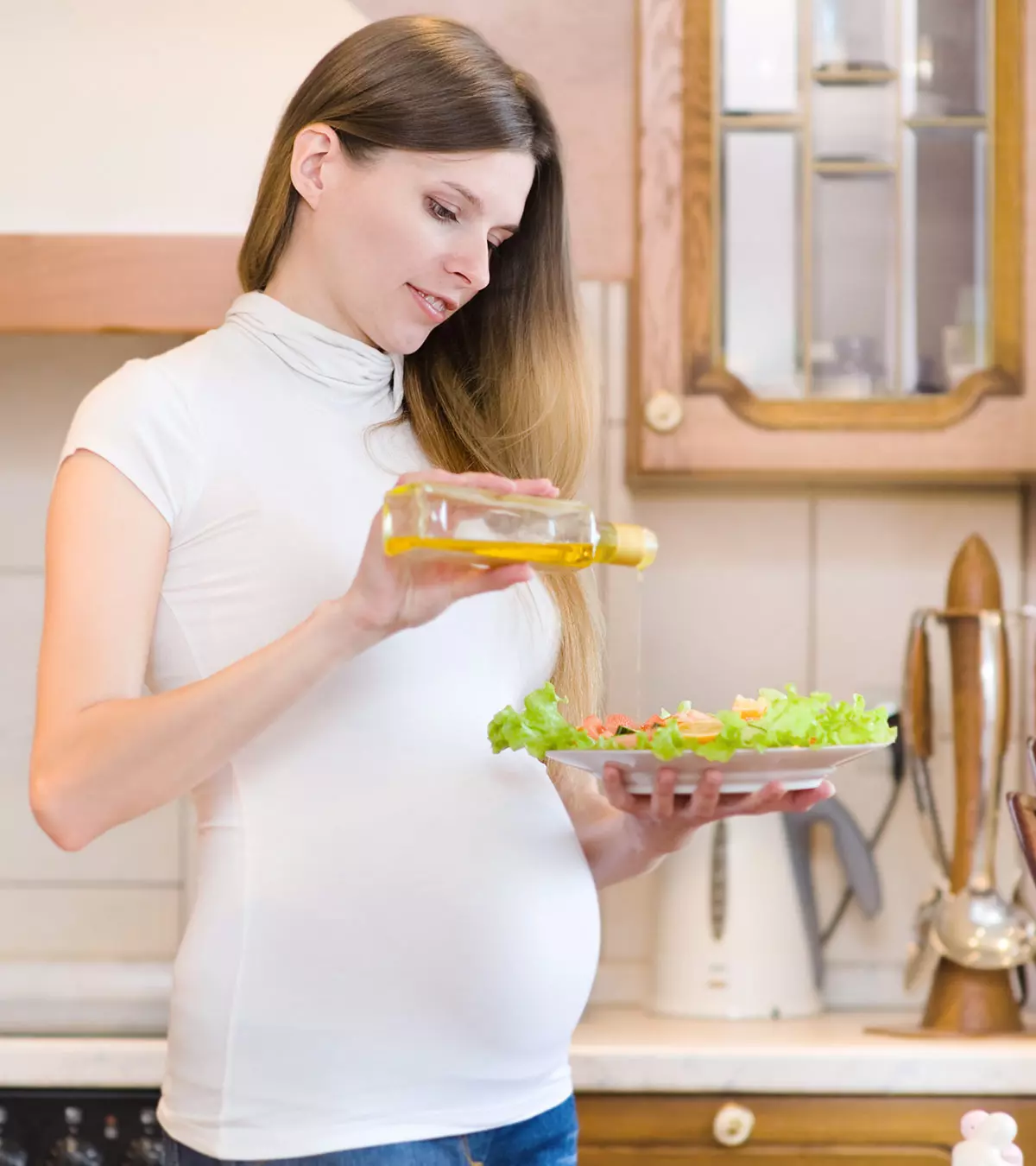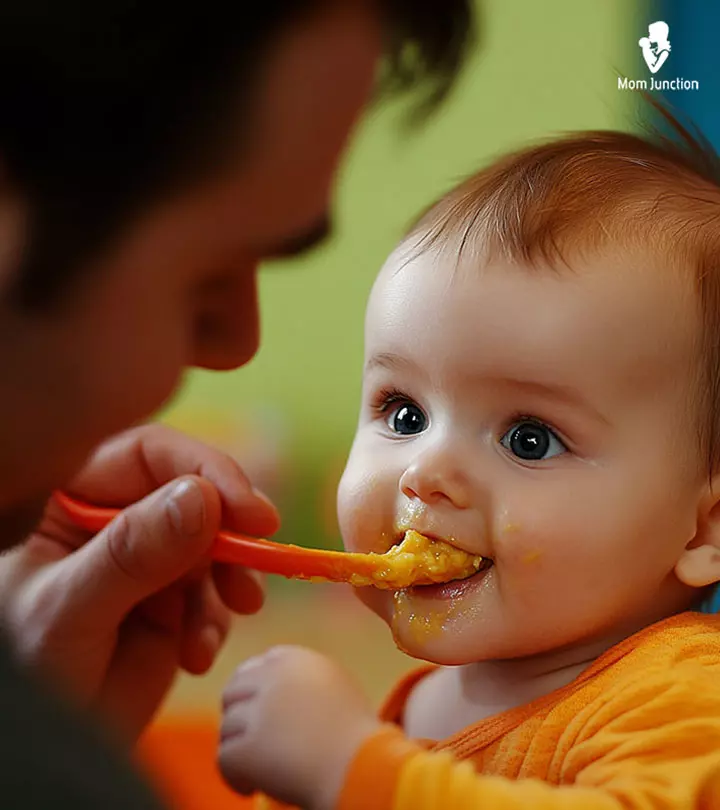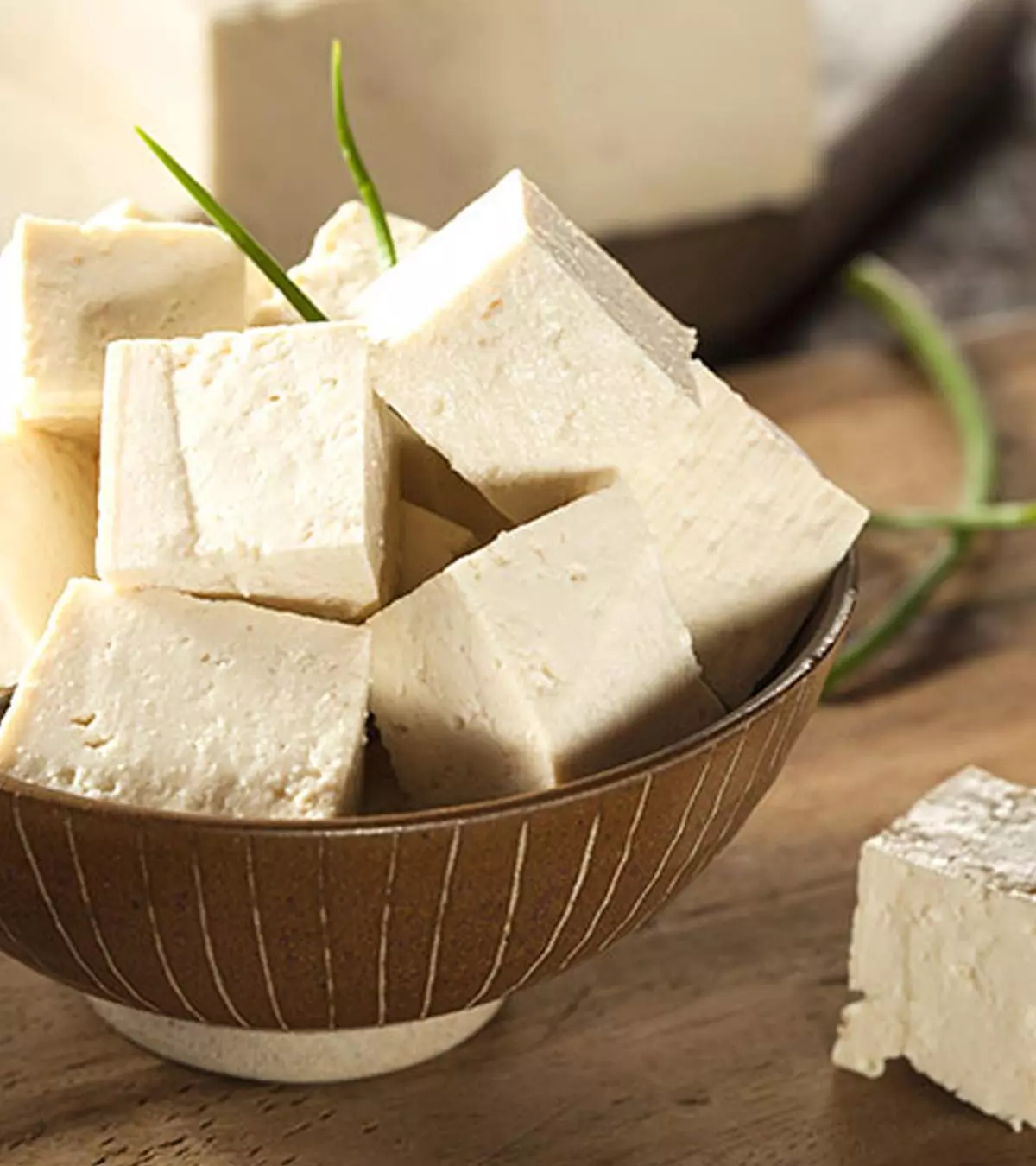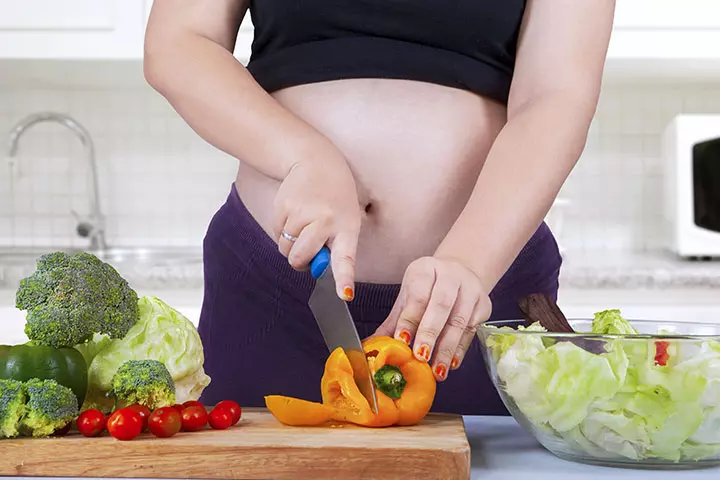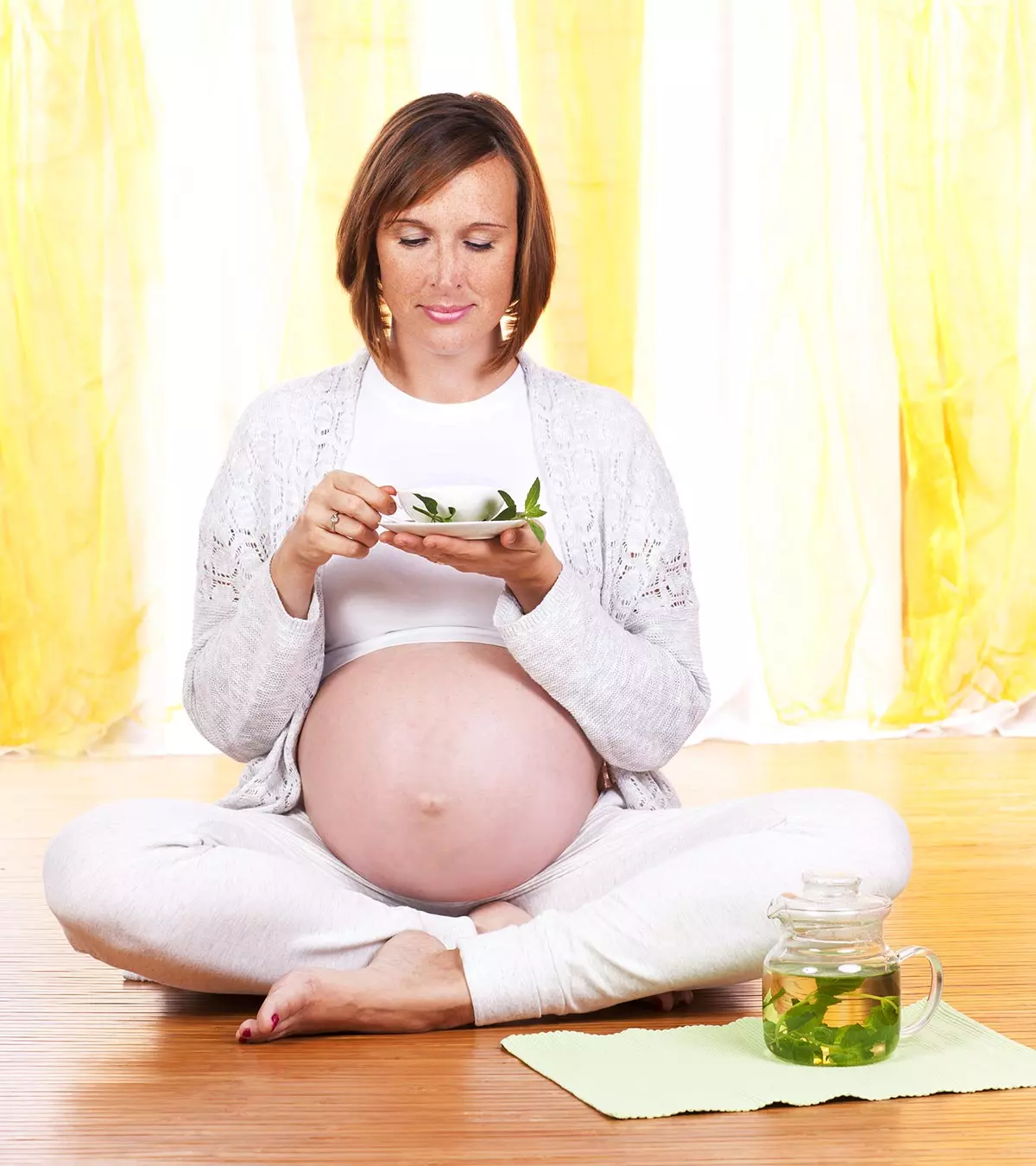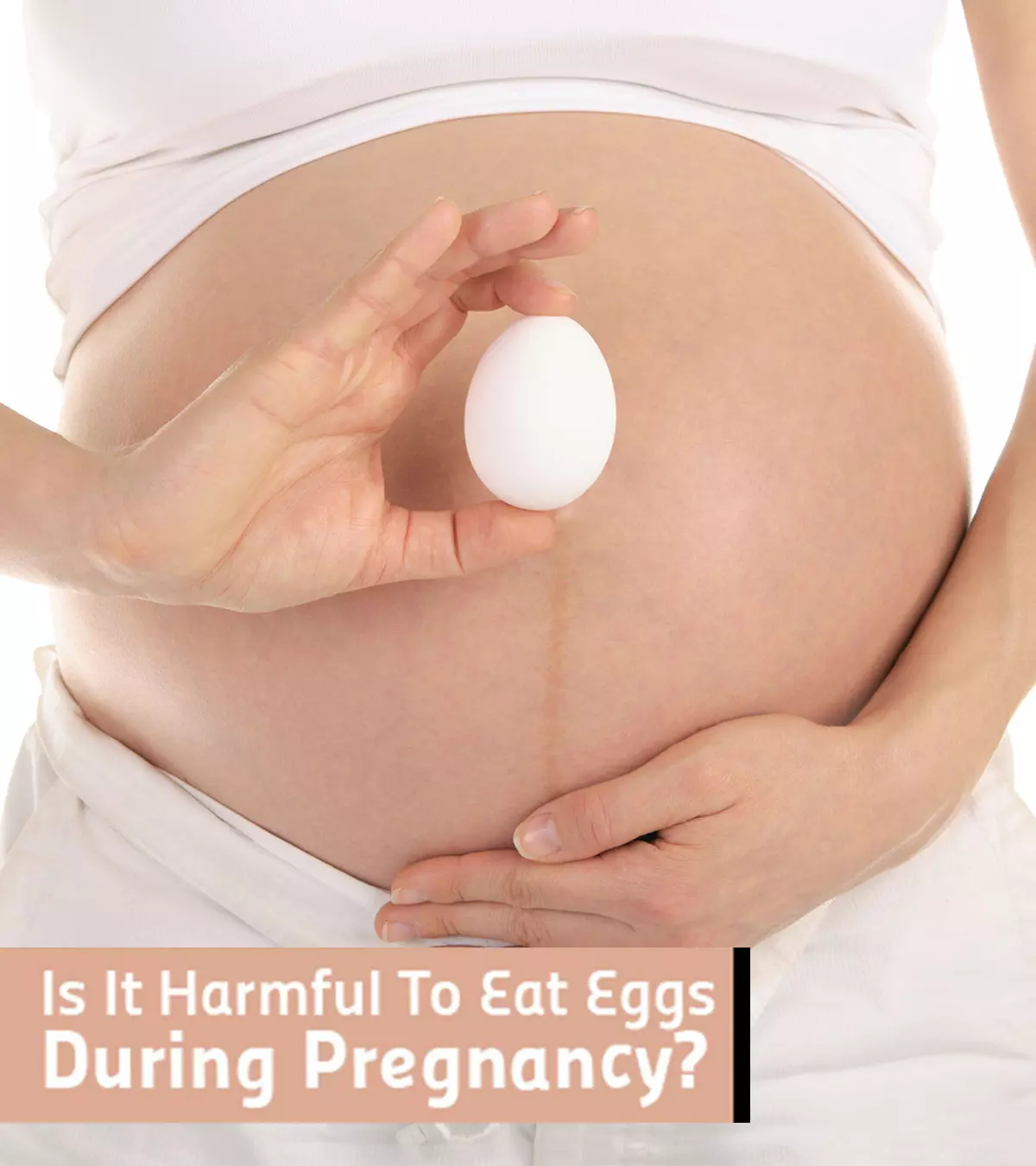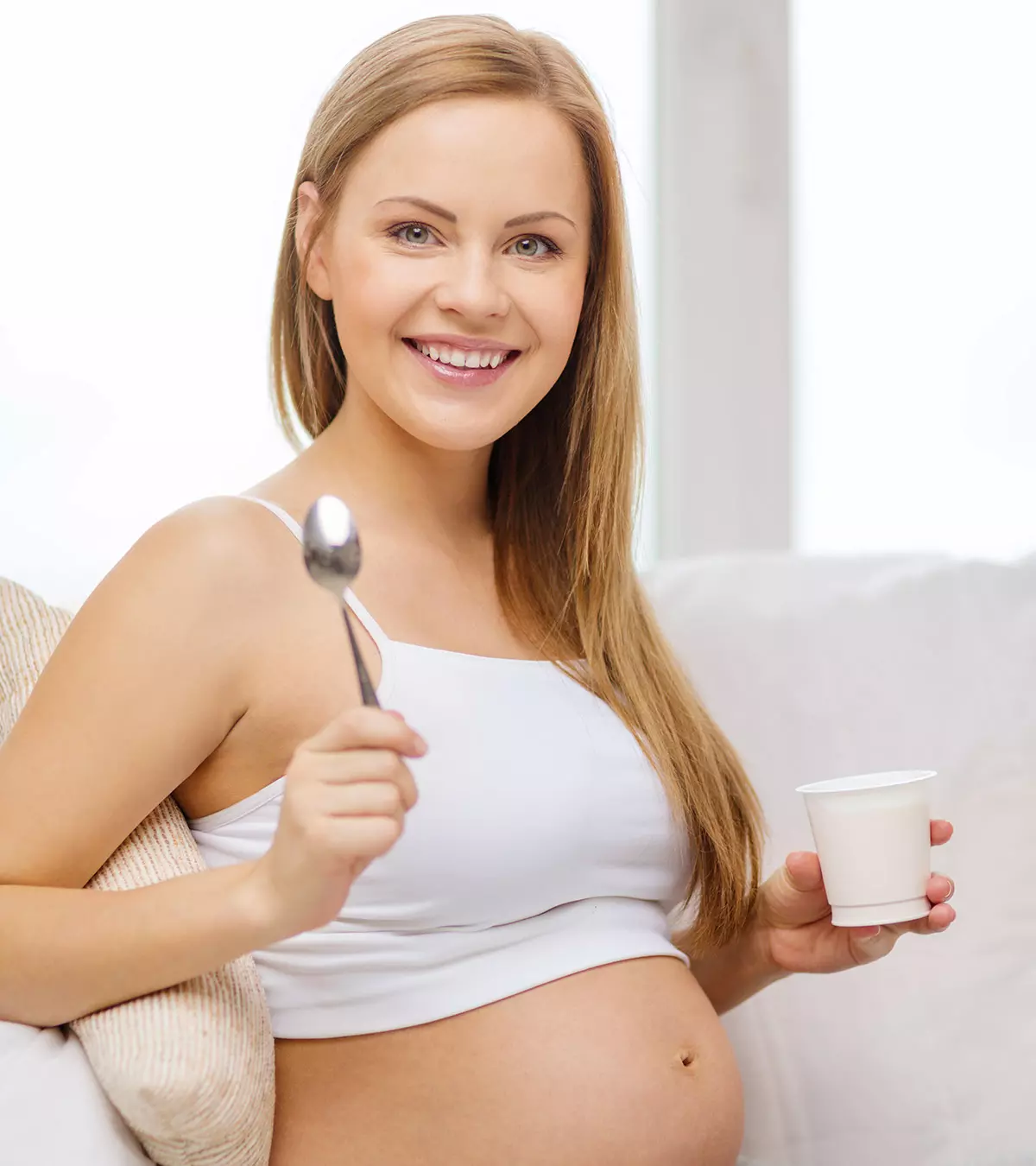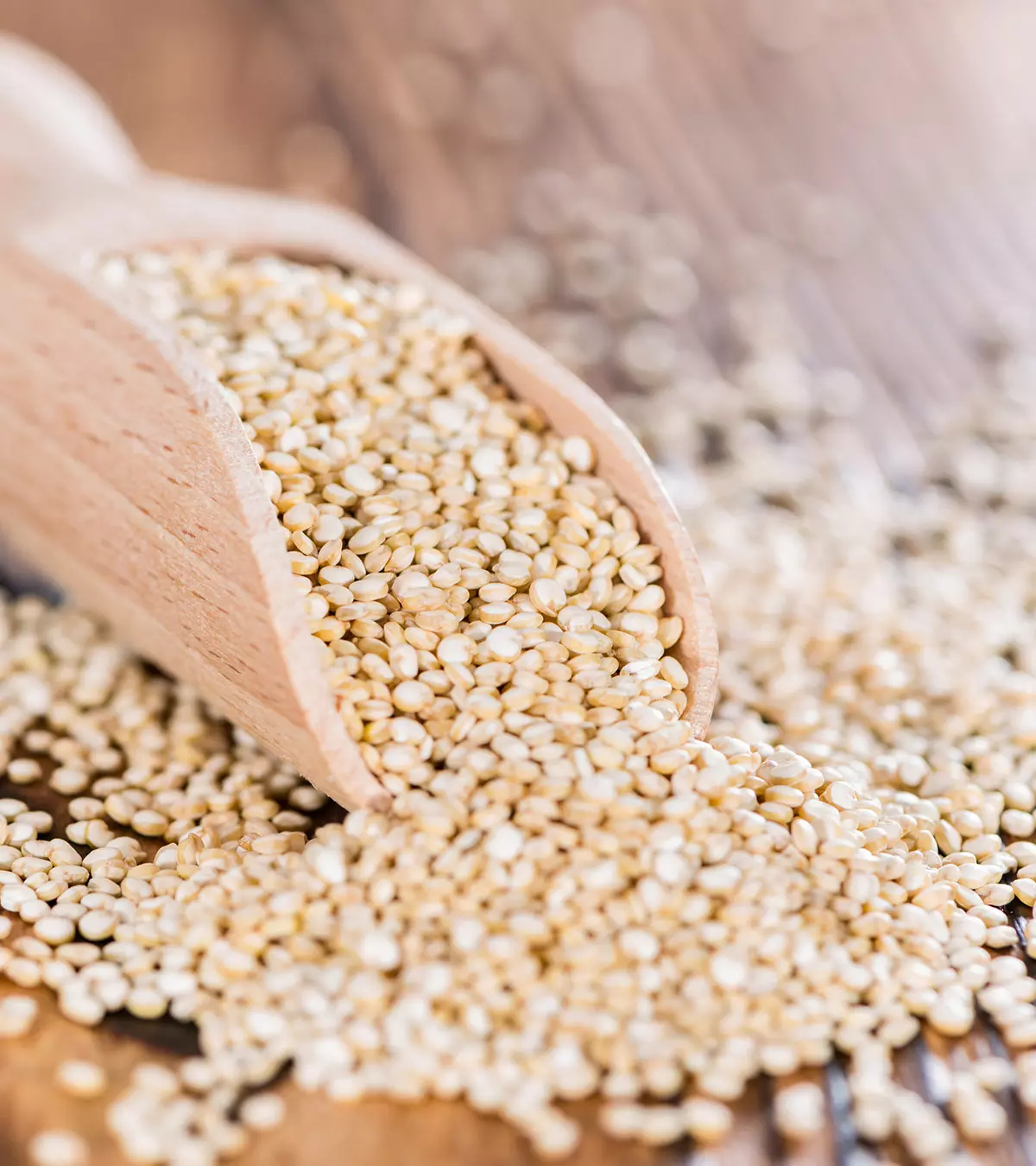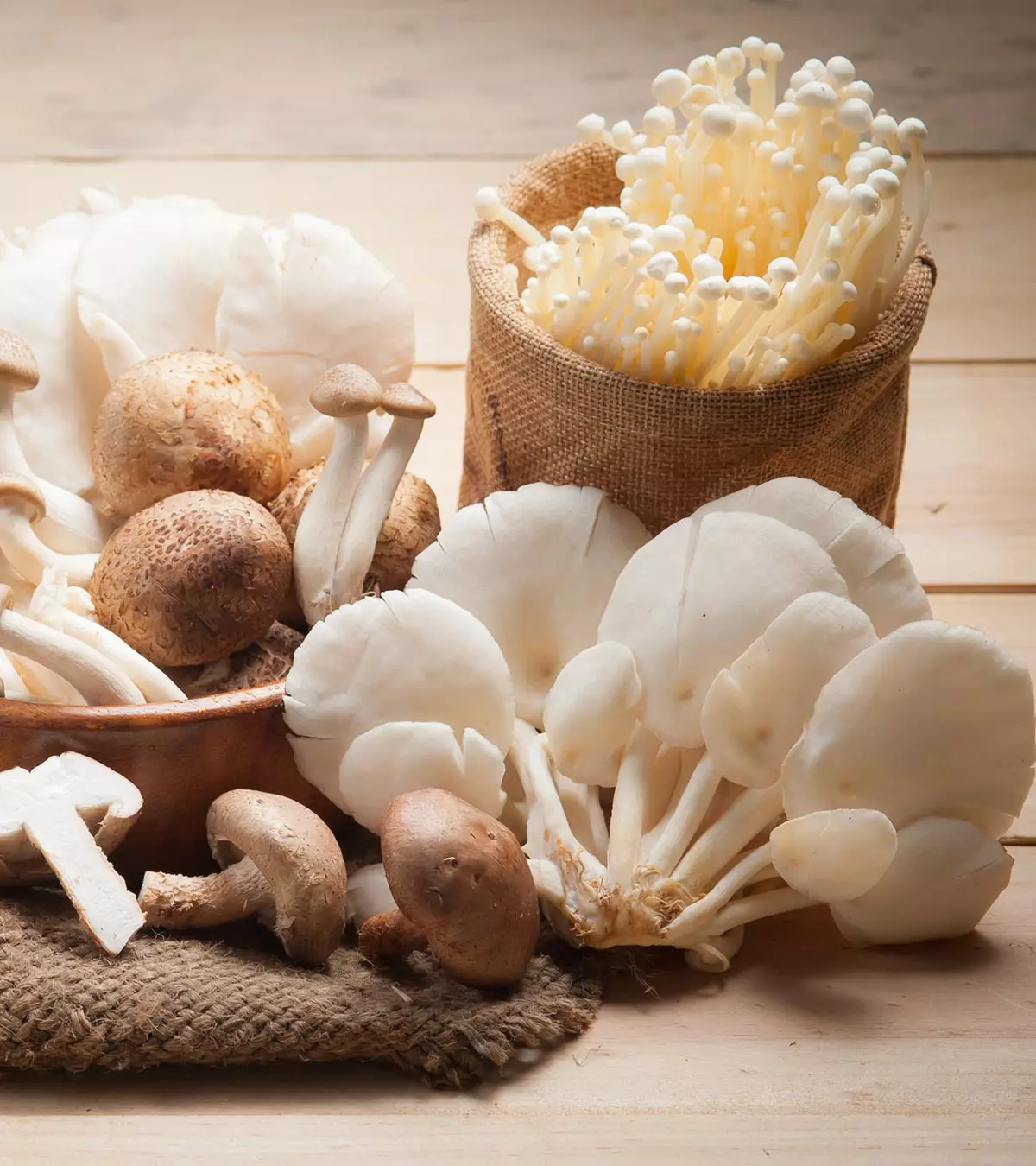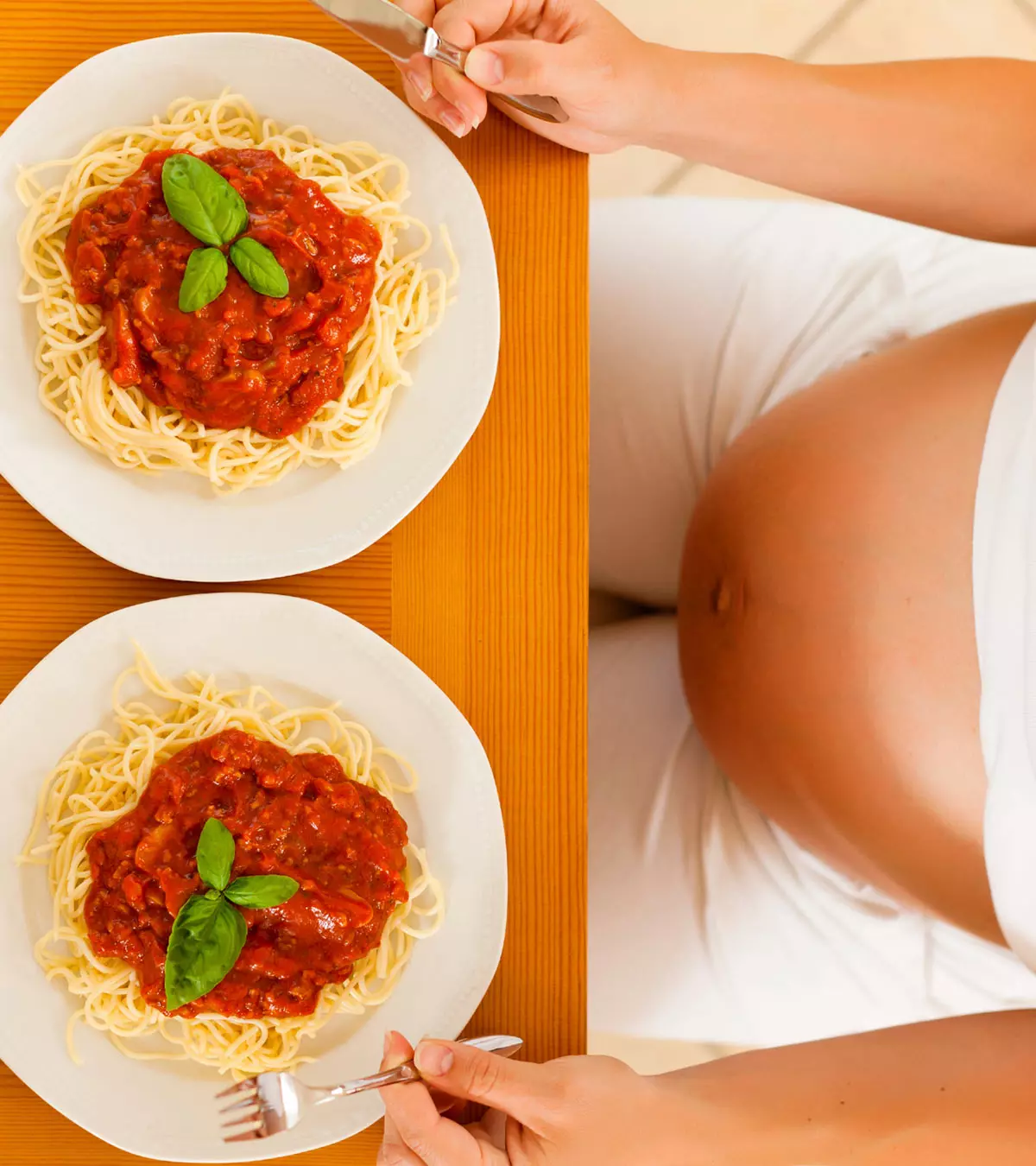
Image: Shutterstock
Many women crave pasta during pregnancy but are worried about its safety. Generally, moderate amounts of pasta can be consumed safely during pregnancy if made at home. However, if you decide to eat pasta, you should pay attention to its quality. For example, it is better to choose healthier varieties, such as wholewheat pasta. Eating pasta in small quantities may offer certain benefits. For example, it provides energy, helps prevent constipation, and helps fight anemia. However, if eaten in excess, it may lead to insufficient absorption of nutrients or increase the risk of infections. Read this post to learn if pasta is safe for pregnant women, its nutritional value, side effects, and some good brands to try.

Key Pointers
- Moderate consumption of homemade and good quality pasta is considered safe during pregnancy.
- Pasta may aid in boosting energy, relieving constipation, reducing infection risks, and combating anemia during pregnancy.
- Pasta made from 100% whole wheat is ideal, as it can lower blood pressure and reduce the risk of heart disease and type 2 diabetes.
- Consuming pasta during pregnancy may promote fetal growth, prevent neural tube defects, and decrease the incidence of hemorrhoids.
- However, overconsumption of pasta can lead to adverse effects such as weight gain in pregnant women.
Can You Eat Pasta During Pregnancy?

Yes, you can eat in moderate quantities but only homemade pasta. Avoid eating ready-made pasta available in stores as it is not healthy. Also, eating anything in excess is harmful.
Florida-based physician Dr. Matthew Casavant recommends, “Pasta can be part of a healthy pregnancy diet when consumed in moderation and with balance. Opt for whole grain or veggie-based pasta, be mindful of portion sizes, and pair it with proteins, healthy fats, and plenty of vegetables.”
Which Type Of Pasta Is Good?
Registered dietitian Alicia Chacha Miller suggests, “Whole grain pastas provide fiber, iron, and B vitamins, while legume-based or protein pastas are excellent choices for boosting protein intake, which is a macronutrient that becomes increasingly important as pregnancy progresses.” Pasta is a very filling and delicious food. To decide on what you should eat and what not when you are expecting, you should know about the various types available (1).
1. Standard pasta
They are made of refined wheat flour. The refinement process involves the removal of the outer shell and inner germ layer, leaving just the starchy endosperm. The nutrient rich outer layer that is removed contains high amounts of vitamins, minerals, phytonutrientsiPlant-derived compounds that benefit human health and fiber, leaving a weaker product. Some nutrients are added back like vitamin B and iron, and thus, the name enriched flour.
2. 100% Whole grain pasta

It includes all the three nutritious layers – bran, germ, and endosperm of the wheat kernel. It contains fiber and micro-nutrients. It is more filling than the standard pasta and offers various health benefits. It helps lower blood pressure and lessens the risk of certain chronic conditions such as heart disease and type 2 diabetes.
Whole grain pasta is grainier and chewier than the regular variety. Many more types of whole grain have come up in the last few years. Do one of these to know if pasta is made up of 100% whole grain:
- Check the list of ingredients. All flour and grains should contain ‘whole’. Oat and brown rice are whole grains.
- Check the pack in the front. Pick only the one that shows 100% whole grain or 100% whole wheat.
- Choose the packs that have an orange whole grain stamp.
 Quick tip
Quick tip3. Whole wheat and white blend pastas
These kinds of pasta are a combination of refined and whole wheat flour. They are less chewy and grained compared to 100% whole grain types, but provide more nutrition than the regular white pasta. They are perfect during the transition period while shifting from the traditional variety to whole wheat.
4. Gluten-free pastas
This variety of pasta is specifically good for those with gluten intolerance and celiac disease. Commonly made from ingredients, such as corn and rice, these pastas have delicate texture and no gluten, which makes them non-chewy.
5. Unique and interesting blends
These kinds of pasta blend in a variety of healthy ingredients for extra nutrition. They could contain lentils, beans, and chickpeas (2). They taste more like traditional pasta than whole grain pasta, so it is the best choice if you do not like brown pasta.
What Are The Health Benefits Of Pasta For Pregnant Women?
1. Sustain energy levels

Pasta is an excellent source of complex carbohydrates as a slow release of energy is helpful in sustaining the levels (3).
2. Prevents gestational diabetes
Pasta is one of the low glycemic indexiA measure used to assess the rate at which specific foods (containing carbohydrates) increase the blood sugar levels foods. Therefore, it regulates your blood sugar levels, helping you to avoid gestational diabetes (4).
3. Safe from hypertension
The low sodium content in pasta will not affect blood pressure levels, and thus, there is no need to worry about high blood pressure. However, be mindful of the added sauces and gravy for pasta which are usually high in salt.
4. Prevents hemorrhoids and constipation
Wheat pasta contain high fiber and are a good source to prevent hemorrhoids and constipation during pregnancy (5).
5. Fights anemia
Pasta is among the iron-rich foods, which help to combat anemia in pregnant women (5).
6. Helps prevent nausea
Plain pasta has a mild flavor that’s easy on the stomach, which is why pasta is one of those foods that individuals experiencing nausea seem to tolerate. You can include small portions of pasta in your diet as a part of a well-balanced diet. Pasta, especially those enriched with vitamins and minerals, can contribute to your nutritional requirements. Besides, they can provide quick energy without stressing your digestive system. If you cook pasta in broth, it can also help in rehydration, mainly if nausea has led to dehydration.
7. Fetus development
Pasta is an excellent source of vitamin B that is helpful in developing the fetus (5).
8. Prevents neural tube defects
Pastas also contain abundant folic acidsiA component of B vitamins, essential for the formation of new, healthy cells in the body that help to prevent neural tube defects in babies. Folic acid consumption during pregnancy has been linked to a lower risk of neural tube defects (5) (7). The CDC reports that the occurrence of neural tube defects, including Anencephaly, Encephalocele, and Spina Bifida, in the United States is estimated to be around one in every 5,246 births, one in every 10,365 births, and one in every 2,875 births, respectively, each year (8).
9. Reduces risk of infections
The vitamin A content in pasta helps to maintain the integrity of mucous membranes, therefore, lessening the risk of any infections during pregnancy (9) (10).
What Are The Risks Of Pasta Consumption During Pregnancy?
Even though pasta is an excellent way to satiate your hunger pangs, it may not be one of the best foods to eat during pregnancy regularly. Eating too much pasta can cause complications.
- The phytates present in pasta block the absorption of magnesium and zinc. The lectinsiProteins found in plants (and plant-based products) that specifically bind to sugars in the gut in them allow the unhealthy food to pass into the blood. So, eating too much pasta is not advisable (11).
- White flour pasta containing refined carbohydrates may stimulate the growth of yeast and is harmful to the stomach, so you need to avoid its regular intake (12). A healthy way to eat pasta is by having it with veggie side dishes and opting for whole-grain or legume-based pasta varieties.
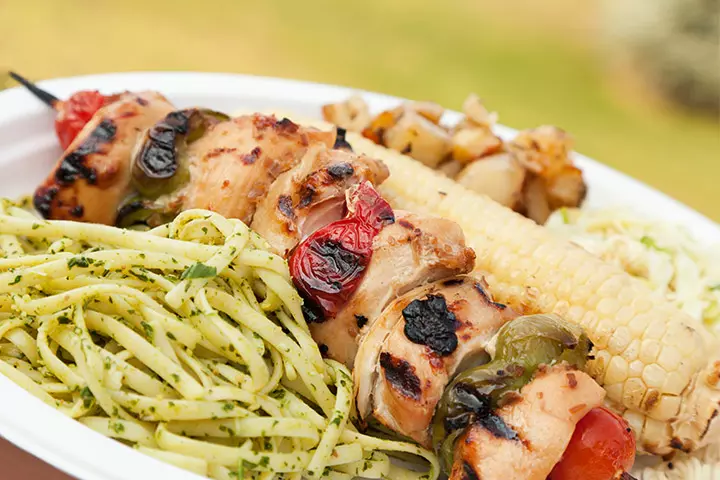
- GluteniNatural proteins found in certain grains (such as wheat and barley), known for their elasticity is high in pasta. If you are intolerant to gluten, you should avoid eating it (13).
- There are high chances for you to gain weight when you take pasta in large amounts. Eat in moderation and do not go overboard (13).
- If you have celiac disease, you may have to avoid eating pasta (13).
 Point to consider
Point to considerHow To Handle Pasta Cravings
During pregnancy, you may get cravings for different foods including pasta; however, it is necessary to handle these cravings healthily.
- Overconsumption of salty and sugary foods can cause weight gain and other health issues. If you have pasta cravings, you should know how to satisfy yourself in a nutritious way. For instance, instead of a large serving of Alfredo-smothered white pasta, you can have a small plate of whole wheat pasta seasoned with a low sodium tomato ketchup. It is a healthier alternative to satisfy your cravings without the addition of excess sugars and calories.
A blogger named Poulami who is a mother of a boy shares about her abnormal craving for pasta during her pregnancy. She says, “During my pregnancy I ate a lot of pasta and pizzas. These were the only things of which I had abnormal cravings for…and since doctor told me to stick to home cooked meals only…I had to look for some easy pasta recipes to indulge in.” Her pasta recipe included minimal ingredients, including pasta, olive oil, garlic, tomatoes, grated parmeggiano-reggiano, freshly ground black peppercorns, seasoning, and salt, emphasizing that a delicious bowl of pasta can be made easily at home (i).
- However, if you choose to eat pasta in a restaurant, ensure that it does not contain allergens or food, such as shellfish based sauces and preservatives that are to be avoided during pregnancy.
- Similarly, if you are gluten intolerant, then you can choose to have quinoa pasta or rice pasta. We suggest reading the labels before you pick your choice. Also, seek a doctor’s help if the cravings are unmanageable.

How To Make Your Pasta Healthy
Pasta can be made delicious as well as healthy by choosing nutritious ingredients and balanced portions. Here are some ways to make your pasta treats into healthier meals:
- Choose whole-grain pasta as they are high in fiber and nutrients.
- Try zucchini, squash, or legume-based pasta.
- Add fresh vegetables, such as tomatoes, spinach, bell peppers, and beans.
- Pair with lean protein like chicken, turkey, salmon, lentils, or eggs.
- Blend with healthy sauces, such as yogurt, blended cashews, and fresh tomato puree.
- Top up with pregnancy-safe herbs and pasteurized cheese.
- Eat moderate portions of pasta recipes to prevent excessive calorie intake and potential weight gain.
Healthy Pregnancy-Safe Pasta Recipes
If made with wholesome ingredients, eating pasta during pregnancy can be more than just satisfying your cravings. Here are two simple, easy-to-prepare nutritious pasta dishes that are safe for expectant mothers:
1. Green Pasta
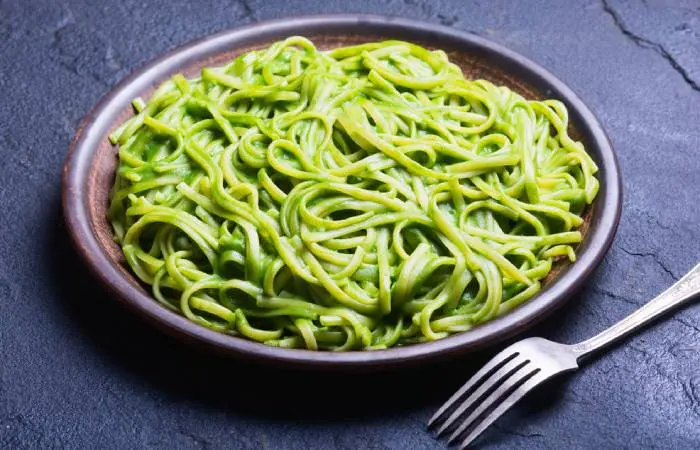
You will need:
- 6 ounces baby spinach
- 2 tbsp extra virgin olive oil
- 1 medium avocado
- 2 tbsp lemon juice
- 1 tsp lemon zest
- 2 garlic cloves
- 1/2 cup grated parmesan
- 1/2 cup water
- 8 ounces pasta
How to:
- Cook the pasta according to the package directions. Reserve 1 cup of the pasta water, then drain.
- In a blender, combine the spinach, olive oil, avocado, lemon juice, lemon zest, garlic, parmesan, and water or broth. Blend until smooth.
- Pour the sauce into the same pot used for cooking the pasta. Cook over medium-low heat for 2-3 minutes, stirring frequently. If the sauce is too thick, add some reserved pasta water.
- Add the pasta to the sauce and toss to coat. Garnish with extra parmesan or lemon juice, if desired.
2. Chicken Marinara Pasta
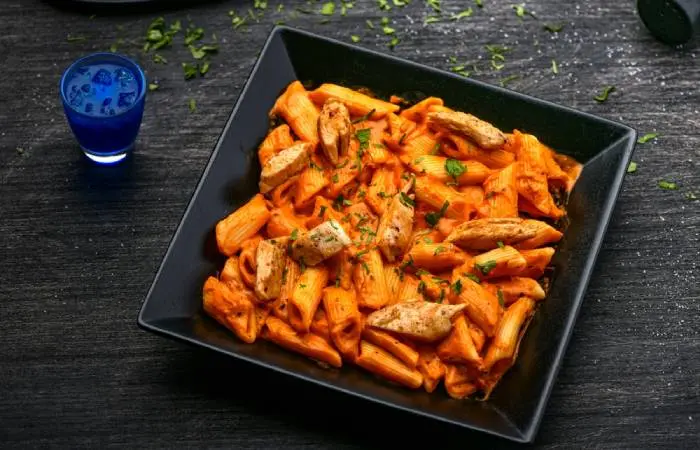
You will need:
- 4 thin-sliced chicken breasts
- 2 tsp garlic powder
- 1 tbsp butter
- 2 tbsp olive oil
- 2-3 minced garlic cloves
- 1 can crushed tomatoes
- 1 tsp dried oregano
- Red pepper flakes
- 2-3 sprigs fresh basil
- 8 ounces of uncooked whole wheat pasta
- Salt and pepper, to taste
How to:
- Season chicken with garlic powder, salt, and pepper.
- Heat butter and 1 tablespoon olive oil in a deep skillet over medium-high heat.
- Cook chicken for 3-4 minutes per side until golden and cooked through. Set aside.
- Bring a large pot of salted water to a boil and cook pasta until almost al dente.
- Lower skillet heat to low; add remaining olive oil and garlic.
- When garlic sizzles, add crushed tomatoes, oregano, red pepper flakes, and basil sprigs. Let the sauce simmer for 15 minutes.
- Slice the chicken, if desired.
- After 15 minutes, remove basil from the sauce and season with salt and pepper.
- Add pasta to the sauce and stir well. Add chicken and let warm for 1-2 minutes.
- Serve hot, topped with extra basil if desired.
Frequently Asked Questions
1. Is pasta good during the first trimester?
Following a healthy diet pattern from the beginning of your pregnancy is essential. Nevertheless, you may include pasta (preferably fiber-rich and whole-grain varieties) in your first-trimester diet (1).
2. What should I eat when I crave pasta?
Suppose you want to eat healthy variations of pasta. In that case, you may incorporate whole-wheat varieties and a balance of healthy fat, vegetables, and lean protein to reap the health benefits and keep yourself energetic and fuller for longer during pregnancy (2).
3. What does a craving for pasta mean?
Studies have shown that most pregnant women may crave carb-rich foods (such as pasta) when they feel low on energy or due to other hormonal or dietary changes (3). However, if you find yourself craving too much of an unhealthy food variety, you must consult a dietician to determine the most appropriate and healthy diet plan for you.
Many women experience an increased craving for consuming junk food during pregnancy. Pasta is a popular prenatal diet food, but women may often wonder if it is safe to consume pasta during pregnancy. You can safely consume whole grain pasta in moderate amounts under your nutritionist’s guidance. Pasta can make for a balanced diet that is nutrient dense and can help you feel full for longer and may also have some health benefits for the developing fetus. However, anything in excess is not good, and you must eat pasta also in moderation. Try making your pasta healthier by adding veggies to them.
Infographic: Benefits Of Whole Grain Pasta And How To Select It
Whole grain pasta may be a better and healthier option than most types of pasta. This is because it has all three nutritious layers and other essential nutrients, making it helpful in managing different health conditions. So this infographic highlights its benefits while providing tips on recognizing an authentic 100% whole grain pasta. Illustration: Momjunction Design Team
Illustration: Is It Safe To Consume Pasta During Pregnancy?

Image: Dall·E/MomJunction Design Team
Personal Experience: Source
MomJunction articles include first-hand experiences to provide you with better insights through real-life narratives. Here are the sources of personal accounts referenced in this article.
i. My Go-to Pasta Recipe;
https://eatreadandcook.blogspot.com/2018/04/my-go-to-pasta-recipe.html
References
- Pregnancy and diet.
https://www.betterhealth.vic.gov.au/health/healthyliving/pregnancy-and-diet - How To Stop Your Cravings for Carbs.
https://health.clevelandclinic.org/how-to-stop-carb-cravings - A. J. Hill et al. (2016); Nutritional and clinical associations of food cravings in pregnancy.
https://www.ncbi.nlm.nih.gov/pmc/articles/PMC5054961/#!po=37.5000 - 7 tips for eating well in pregnancy.
https://www.tommys.org/pregnancy-information/im-pregnant/nutrition-in-pregnancy/balanced-diet-pregnancy - Serving Sizes: Nutrition for Pregnant Women with Diabetes.
https://mydoctor.kaiserpermanente.org/ncal/article/serving-sizes-nutrition-for-pregnant-women-with-diabetes-721286 - Common Types of Pasta.
https://sharethepasta.org/pasta-101/types-of-pasta/ - USDA-ARS Food Legume Genetics.
https://www.ars.usda.gov/midwest-area/east-lansing-mi/sugarbeet-and-bean-research/docs/pasta/ - Confused About Carbs.
https://sharethepasta.org/pasta-nutrition/the-truth-about-carbs/ - Diabetes and healthy nutrition.
https://idf.org/about-diabetes/diabetes-management/healthy-nutrition/ - An Essential Guide on What to Eat During Pregnancy.
https://www.fhcsd.org/prenatal-care/what-to-eat-during-pregnancy/ - Ease Nausea with Natural Remedies.
https://www.nationwidechildrens.org/page-not-available?requested=%2Ffamily-resources-education%2Ffamily-resources-library%2Fease-nausea-with-natural-remedies - Neural Tube Defects (NTD).
https://my.clevelandclinic.org/health/diseases/22656-neural-tube-defects-ntd - Data and Statistics on Birth Defects.
https://www.cdc.gov/birth-defects/data-research/facts-stats/index.html - Nutrition Facts; Pasta, fresh-refrigerated, plain, cooked, 1 oz
https://www.urmc.rochester.edu/encyclopedia/content?contenttypeid=76&contentid=20094-1 - Vitamin A (Retinol).
https://www.mountsinai.org/health-library/supplement/vitamin-a-retinol - Are Anti-Nutrients Harmful?
https://nutritionsource.hsph.harvard.edu/anti-nutrients/ - Eating and cooking without Yeast.
https://ariya.health/wp-content/uploads/2025/06/Yeast-support-guide.pdf - Denise Webb; (2019); Pasta’s History and Role in Healthful Diets.
https://journals.lww.com/nutritiontodayonline/fulltext/2019/09000/pasta_s_history_and_role_in_healthful_diets.7.aspx - How to eat well in pregnancy.
https://www.tommys.org/pregnancy-information/im-pregnant/nutrition-in-pregnancy/balanced-diet-pregnancy - Healthy Eating for Gestational Diabetes
https://mydoctor.kaiserpermanente.org/ncal/article/healthy-eating-for-gestational-diabetes-721271
Community Experiences
Join the conversation and become a part of our nurturing community! Share your stories, experiences, and insights to connect with fellow parents.
Read full bio of Shivani Sikri
- Dr. Matthew Casavant is the founding physician of South Lake OB/GYN & Advanced Surgery. He received his medical degree from Nova Southeastern University in South Florida and completed his residency as an Ob/Gyn at St. Vincent’s /Mercy Hospital in Toledo, OH. Dr. Casavant also holds a BS degree in Micro and Molecular Biology.
 Dr. Matthew Casavant is the founding physician of South Lake OB/GYN & Advanced Surgery. He received his medical degree from Nova Southeastern University in South Florida and completed his residency as an Ob/Gyn at St. Vincent’s /Mercy Hospital in Toledo, OH. Dr. Casavant also holds a BS degree in Micro and Molecular Biology.
Dr. Matthew Casavant is the founding physician of South Lake OB/GYN & Advanced Surgery. He received his medical degree from Nova Southeastern University in South Florida and completed his residency as an Ob/Gyn at St. Vincent’s /Mercy Hospital in Toledo, OH. Dr. Casavant also holds a BS degree in Micro and Molecular Biology. - Alicia Chacha Miller is a registered dietitian specializing in maternal and pediatric nutrition. She holds an MS in Nutrition Science from the University of Southern California and founded Cardamom Nutrition.
 Alicia Chacha Miller is a registered dietitian specializing in maternal and pediatric nutrition. She holds an MS in Nutrition Science from the University of Southern California and founded Cardamom Nutrition.
Alicia Chacha Miller is a registered dietitian specializing in maternal and pediatric nutrition. She holds an MS in Nutrition Science from the University of Southern California and founded Cardamom Nutrition.
Read full bio of Rebecca Malachi
Read full bio of Swati Patwal
Read full bio of Dr. Joyani Das






